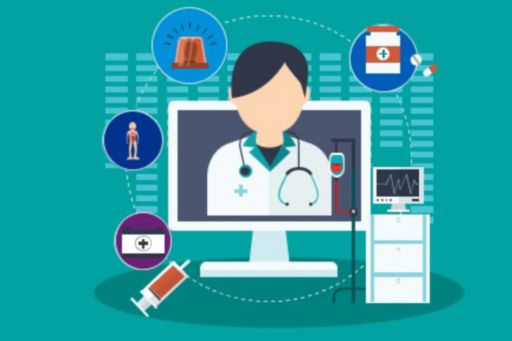Rethinking healthcare through digital transformation
Rethinking healthcare through digital transformation
There is a new and rapidly changing healthcare landscape globally, where digital technologies are becoming increasingly normalized into the everyday delivery of healthcare.
Bangkok, 10 April 2019 – There is a new and rapidly changing healthcare landscape globally, where digital technologies are becoming increasingly normalized into the everyday delivery of healthcare. Around the world, health service providers are struggling to keep up with the pace of change. The approach of most healthcare providers have focused on back office efficiency and improving simple transactions, while leaving the majority of patient-facing activity unchanged.

“Digital technology has a vital role in the healthcare industry, especially for senior and aftercare programs, says Natasak Rodjanapiches, Advisory Director, KPMG in Thailand. “A combination of advanced technology can be used in multiple angles of healthcare through real time data collection from the IoT and weareable devices. Advanced analytic tools such as AI, precision medicine and Robotic Process Automation can certainly help hospitals and healthcare providers deliver healthy and quality living to the elderly.”
Navigating this new landscape is challenging for organizations and their leaders as they try to increase productivity and quality through digital technology. There is no doubt, however, that technological transformation will be one of the major differentiators between successful and unsuccessful providers over the next decade. The pressures of cost and expectations of quality mean that doing nothing is not a sustainable option.
However, a pattern that has appeared in past technological initiatives was great expectations of new technology clashing against an initial period of frustration and reduced productivity. Benefits would eventually materialize – often after two or more years – but weathering this ‘digital dip’ was an important hurdle that has led to many transformation strategies being scaled back or even abandoned.
Examining both successful and unsuccessful technological implementation in healthcare, it is clear that success isn’t achieved by replacing analogue processes with digital ones. It’s about rethinking the purpose of services, re-engineering how they are delivered and capitalizing on opportunities afforded by data to adapt and learn.
In its ‘Digital health: heaven or hell?’ report, KPMG identified seven key lessons from those that have successfully realized the benefits and overcome the setbacks.
1. Transformation first: Transformation comes from new ways of working, not the technology itself. You need a transformation program supported by technology not the other way round. This is the fundamental lesson that underpins everything else.
2. People problems not technology problems: The majority of the issues faced along the transformation journey are people problems, not technology problems. These require sophisticated leadership and change management capabilities.
3. System design: There has been insufficient attention to the design of systems. Technologies need to solve problems recognized by people who are going to use them, be they patients or professionals. This requires a deep understanding of the work as well as the needs of the worker.
4. Invest in analytics: Far too often providers make significant investments in digital systems but overlook the capabilities to use the data collected – hence the payback is never seen.
5. Multiple iterations and continuous learning: Even with careful design there may need to be a number of iterations in the design of systems. This is a continuous process and there may be several cycles – some quite painful – before systems reach a tipping point where all of this investment starts to pay off.
6. Support interoperability: The inability to share and combine data between different systems is a major hindrance to realizing the full benefit of technology in healthcare. A coordinated approach to minimum interoperability standards would help accelerate healthcare providers’ digital journey.
7. Sound information governance and data security procedures: Data sharing requires strong information governance and security, particularly in the face of a growing threat from cyber-attacks. Action is required at a national and local level to help organizations hold and share data safely.
Thai version: พลิกโฉมการดูแลสุขภาพผ่านการเปลี่ยนแปลงดิจิทัล
KPMG is a global network of professional services firms providing Audit, Tax and Advisory services. We operate in 153 countries and territories and have 207,000 people working in member firms around the world. The independent member firms of the KPMG network are affiliated with KPMG International Cooperative (“KPMG International”), a Swiss entity. Each KPMG firm is a legally distinct and separate entity and describes itself as such.
KPMG in Thailand, with more than 1,700 professionals offering audit, tax, and advisory services, is a member firm of the KPMG network of independent firms affiliated with KPMG International Cooperative (“KPMG International”), a Swiss entity.
For media enquiries, please contact:
Ploi Phayakvichien
Tel: 02 677 2034, 081 487 1281
Some or all of the services described herein may not be permissible for KPMG audit clients and their affiliates or related entities.
© 2026 KPMG Phoomchai Holdings Co., Ltd., a Thai limited liability company and a member firm of the KPMG global organization of independent member firms affiliated with KPMG International Limited, a private English company limited by guarantee. All rights reserved.
For more detail about the structure of the KPMG global organization please visit https://kpmg.com/governance.